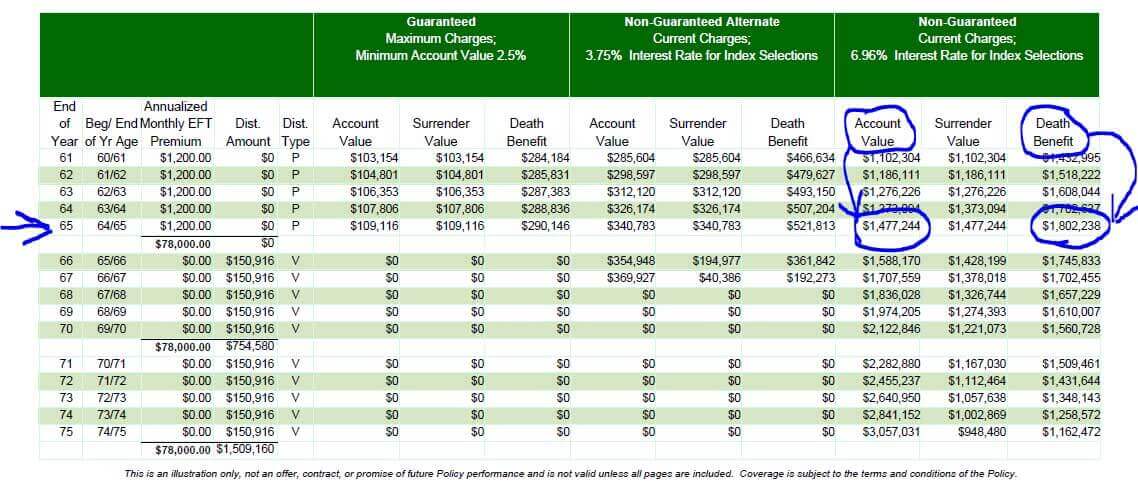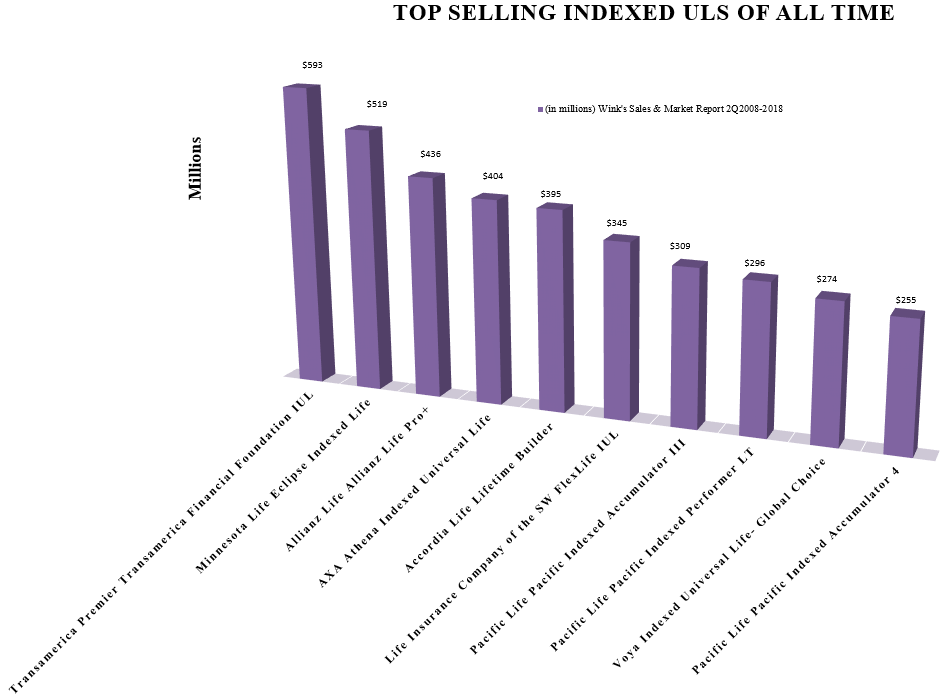All Categories
Featured
Table of Contents
1), frequently in an effort to beat their group averages. This is a straw male argument, and one IUL individuals like to make. Do they contrast the IUL to something like the Lead Total Amount Securities Market Fund Admiral Shares with no load, an expense ratio (EMERGENCY ROOM) of 5 basis points, a turnover proportion of 4.3%, and an outstanding tax-efficient record of distributions? No, they compare it to some terrible actively managed fund with an 8% lots, a 2% EMERGENCY ROOM, an 80% turnover proportion, and a terrible record of temporary capital gain circulations.
Mutual funds commonly make annual taxed circulations to fund proprietors, even when the value of their fund has decreased in value. Mutual funds not just need revenue reporting (and the resulting yearly taxation) when the common fund is rising in value, but can also impose income taxes in a year when the fund has actually dropped in value.
You can tax-manage the fund, gathering losses and gains in order to decrease taxed distributions to the financiers, yet that isn't in some way going to transform the reported return of the fund. The ownership of common funds may call for the common fund proprietor to pay approximated taxes (index universal life insurance policy).

IULs are simple to place to make sure that, at the proprietor's fatality, the recipient is exempt to either earnings or estate tax obligations. The same tax decrease techniques do not work almost as well with common funds. There are numerous, typically expensive, tax traps connected with the moment purchasing and marketing of mutual fund shares, traps that do not relate to indexed life insurance policy.
Chances aren't really high that you're mosting likely to undergo the AMT as a result of your common fund circulations if you aren't without them. The rest of this one is half-truths at best. While it is true that there is no revenue tax obligation due to your beneficiaries when they inherit the profits of your IUL policy, it is likewise true that there is no revenue tax due to your heirs when they inherit a shared fund in a taxed account from you.
Veterans Universal Life Insurance
There are much better ways to prevent estate tax issues than buying investments with reduced returns. Mutual funds might cause income taxation of Social Safety and security benefits.

The development within the IUL is tax-deferred and might be taken as tax obligation complimentary revenue through finances. The plan proprietor (vs. the mutual fund supervisor) is in control of his or her reportable income, hence enabling them to reduce or also eliminate the taxation of their Social Security advantages. This is wonderful.
Right here's one more very little concern. It's real if you acquire a shared fund for state $10 per share prior to the circulation day, and it disperses a $0.50 distribution, you are then going to owe taxes (most likely 7-10 cents per share) regardless of the fact that you have not yet had any gains.
In the end, it's really concerning the after-tax return, not just how much you pay in taxes. You are mosting likely to pay more in tax obligations by utilizing a taxable account than if you acquire life insurance coverage. But you're likewise possibly going to have more money after paying those taxes. The record-keeping requirements for having common funds are dramatically more intricate.
With an IUL, one's records are kept by the insurer, duplicates of annual declarations are mailed to the proprietor, and distributions (if any) are completed and reported at year end. This one is also type of silly. Obviously you ought to maintain your tax obligation records in case of an audit.
Universal Life Online
Hardly a reason to acquire life insurance. Mutual funds are commonly part of a decedent's probated estate.
Furthermore, they are subject to the hold-ups and expenses of probate. The earnings of the IUL plan, on the various other hand, is always a non-probate circulation that passes outside of probate straight to one's called beneficiaries, and is consequently not subject to one's posthumous lenders, unwanted public disclosure, or similar delays and prices.
Medicaid incompetency and life time revenue. An IUL can offer their owners with a stream of earnings for their entire life time, no matter of exactly how lengthy they live.

This is advantageous when organizing one's events, and transforming assets to income before a nursing home arrest. Shared funds can not be transformed in a similar fashion, and are generally taken into consideration countable Medicaid possessions. This is one more dumb one promoting that inadequate individuals (you understand, the ones that require Medicaid, a federal government program for the poor, to spend for their assisted living home) must use IUL as opposed to common funds.
Why Universal Life Insurance Is Bad
And life insurance policy looks horrible when contrasted rather against a retirement account. Second, individuals who have cash to get IUL above and past their pension are mosting likely to have to be awful at handling cash in order to ever before get approved for Medicaid to pay for their retirement home prices.
Persistent and incurable health problem cyclist. All policies will certainly enable a proprietor's simple access to cash from their policy, often forgoing any abandonment charges when such people suffer a significant health problem, require at-home care, or become constrained to an assisted living home. Common funds do not supply a comparable waiver when contingent deferred sales costs still put on a common fund account whose owner requires to offer some shares to money the expenses of such a keep.
Single Premium Universal Life Insurance Pros Cons
Yet you reach pay even more for that benefit (rider) with an insurance plan. What a lot! Indexed global life insurance coverage offers survivor benefit to the recipients of the IUL proprietors, and neither the proprietor neither the recipient can ever lose money as a result of a down market. Mutual funds offer no such guarantees or fatality benefits of any type of kind.
I definitely don't need one after I reach financial independence. Do I desire one? On standard, a buyer of life insurance policy pays for the real price of the life insurance benefit, plus the expenses of the policy, plus the revenues of the insurance coverage company.
Iul Online
I'm not totally certain why Mr. Morais included the entire "you can not shed money" once again below as it was covered rather well in # 1. He just intended to repeat the best marketing factor for these points I intend. Again, you do not shed small dollars, but you can shed actual dollars, as well as face major possibility price due to reduced returns.

An indexed global life insurance coverage plan proprietor may trade their policy for a totally various policy without causing income tax obligations. A common fund owner can not move funds from one shared fund company to one more without offering his shares at the former (thus activating a taxed event), and redeeming brand-new shares at the latter, typically based on sales charges at both.
While it is real that you can trade one insurance coverage for an additional, the factor that people do this is that the very first one is such a horrible policy that also after purchasing a new one and experiencing the early, negative return years, you'll still come out in advance. If they were sold the ideal plan the initial time, they shouldn't have any kind of desire to ever before trade it and experience the very early, unfavorable return years once again.
Table of Contents
Latest Posts
Iul L
Best Iul Policies
Financial Foundation Iul
More
Latest Posts
Iul L
Best Iul Policies
Financial Foundation Iul